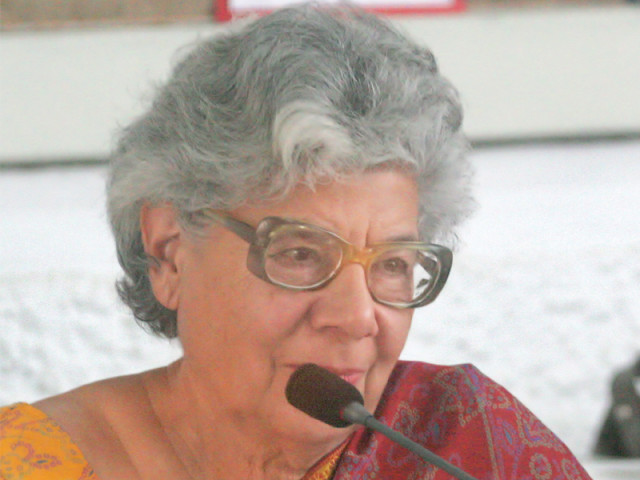Revamp the system: ‘A’ Level schools have become factories for good grades’
Experts say extracurricular activities need to be included during regular school hours.

Revamp the system: ‘A’ Level schools have become factories for good grades’
A panel discussion on education was organised on Thursday by The Lyceum School at which experts told the audience - comprising students, researchers and educationists - that a reform was needed.
Dr Ishrat Lindblad, formerly a professor at Stockholm University, said that schools now focus exclusively on getting students through the gates of prestigious universities. Pakistan’s schools could benefit if they would follow ‘Roundsquare’ - a worldwide association of educational institutions that strive to go beyond academic excellence and aim at students’ personal development, she suggested.
The associations aspires to promote six ‘ideals’, which are internationalism, democracy, environment, adventure, leadership and service. “The ideals need to be integrated into the regular system of education and the timetable.”

Some schools designate Saturdays for extracurricular activities, but the administration then has to face teachers’ complaints. “The teachers have to complete the syllabus. Because of the abrupt closure of schools over the law and order situation on weekdays, teachers often conduct classes on the weekends,” said Dr Lindblad. Dr Shams Kassim-Lakha, Aga Khan University’s founder president, had an explanation for why the teachers are so adamant about holding classes on Saturdays. “They do this because their performance is evaluated by how many stars their students score and this happens across the world.”
He said that in Pakistan, people lean towards the natural sciences and turn their noses up at the social sciences, which are considered ‘soft’ options “It is a terrible crime against your own children,” he said. “Nobody would even teach them about the country’s constitution, humanities or civics.”
He advocated the IB system where a student has to go through a mix of six or seven subjects in science and arts along with community service projects. “Even at the birthplace of the Cambridge system, numerous studies have established IB as a system that gave consistent results,” said Dr Kassim-Lakha. “I’m not decrying A-levels as it has its own value. But that value is limited.” Dr Kamran Asdar Ali, an associate professor at University of Texas, said the country’s own education systems had slid into decline during the 1980s, causing a void that was filled by foreign boards. Recalling the early 1980s when he attended Dow Medical College, Dr Ali said that a majority of his batchmates went to public institutions.

About half of them are now living as respected members of society in other countries. “A system was in place to produce individuals with potential to become professionals.”
Teachers’ poor performance at public schools in the absence of a monitoring system has allowed private boards to outshine the public education sector, explained Dr Kassim-Lakha. He termed the public boards “multi-million dollar organisations” which are run by corrupt people.
Perhaps, this was the reason, he said, the Aga Khan University Education Board faced so much resistance from the provincial and federal education boards that it was finally permitted to only affiliate private schools and public schools were barred.
Zubeida Mustafa, who served as an associate editor at Dawn, was also a panellist and spoke about the importance of language.
Published in The Express Tribune, December 24th, 2012.
___________________________________________________________
[poll id="980"]



















COMMENTS
Comments are moderated and generally will be posted if they are on-topic and not abusive.
For more information, please see our Comments FAQ